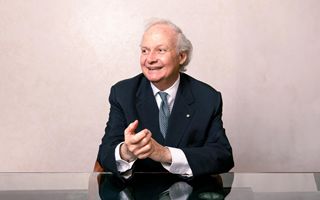(Finance) – Is it possible to improve the planet without giving up progress? The essay “starts from this utopian but reasonable reflection”Finding the human again. Because there is no sustainability without Health, Human and Happiness” written by Massimo Lapucci, Manager and Senior Advisor, International Fellow on Artificial Intelligence at Yale University and from Stefano Lucchini, Chief Institutional Affairs and External Communication Officer of Intesa Sanpaolo which comes out in bookstores today, published by Baldini+Castoldi-La Nave di Teseo.
The authors investigate without hesitation the current and pressing topic of ESG (Environmental, Social and Governance) principles and in particular the need for their renewal. A renewal that according to Lapucci and Lucchini starts from an H, the H of Health, but also of Human, Heart and consequently, as sublimated in the American Declaration of Independence, of Happiness, giving rise to a new acronym “ESG+H” which sees the human being as a Person “integrated into the global village” in terms of health, sustainability and well-being.
A truly pragmatic manifesto on the ESG of the future in which Lapucci and Lucchini, both with vast and qualified experience in both the corporate and non-profit worlds, retrace the historical evolutions during the industrial revolutions, passing through the most current issues of work, AI and ethical finance and accompany the reader in the rediscovery of that drive, already manifested in the century of the Enlightenment, to bring the dignity of the Person back to the centre, in a hoped-for new humanism, as the pursuit of collective well-being.
“Rediscovering the Human” starts from the awareness that in an era of radical transformations, it is necessary to rethink the concept of sustainability, proposing an innovative vision of ESG that goes beyond traditional parameters and introducing the human element as a fundamental catalyst for change. It’s not just about metrics and measurements, but about building a future in which technological progress and sustainability can merge with the well-being of the Person. This paradigm shift is represented precisely by ESG+H, where health, person and happiness become essential elements for truly sustainable development.
“The twenty-year benefits linked to ESG sustainability, however objective, risk being nullified by criticism and suspicions about their actual effectiveness, – he states Massimo Lapucci– In recent years, ESG principles have sometimes been inflated, altered by communication needs, or even instrumentally eroded to the point of making them a bureaucratic requirement or a mere budgetary quantification. This is why the new ESG+H paradigm wants first and foremost stimulate reflection for the renewal of a precious instrument which, starting from the Person and in harmony with the planet, can have repercussions on the improvement of working conditions, the economy and therefore society as a whole, for a truly sustainable future”.
“In an ever-evolving world, the needs related to ESG sustainability are not a recent phenomenon, but a principle that has its roots in the industrial revolutions that preceded us, – he states Stefano Lucchini – Every economic transformation has brought with it new challenges for the environment and society, and today, more than ever, it is essential to renew our approach to sustainability starting from a simple consideration: we cannot talk about sustainability without thinking about the human being in his entirety. The new ESG+H dimension that we propose in our essay places the health, well-being and dignity of the Person at the centre, as the basis for a desired new humanism”.
